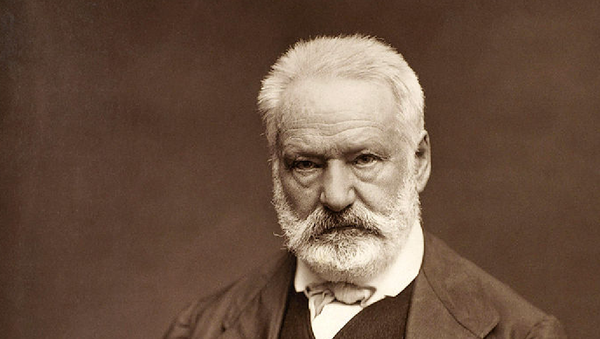Victor Hugo is a name that requires littler introduction. He is considered to be not just a classic author, but one of the greatest French writers in history. His poetry is as renowned as his prose. One of his most known works is the novel Les Miserables. His literary prowess has earned him honor and recognition among peers. In 1841 he was elected to the Académie française in 1841, the French council for all matters pertaining to the French language, where members hold position for life. However, this happened after three unsuccessful attempts, as some members of the council were struggling against the so-called “romantic evolution”, spearheaded by Hugo. This was when Hugo began to be increasingly involved in politics, which eventually led to his exile.
Hugo was elected to the Frence Constituent Assembly and the Legislative Assembly following the 1848 revolution, supporting the presidential candidacy of Louis-Napoléon Bonaparte. After his winning the election, the Prince-President shifter to greater authoritarianism, while Hugo pertained to the assembly’s liberal views. The tensions peaked in 1851, when a coup d’état led to the formation of the Second Empire, ruled by Napoleon III. Hugo was forced to flee the country in exile and not return for nearly 20 years.
He continued pursuing both writing and politics while in exile, often combining both. In the chapter ‘What 1852 would have been’ of the political pamphlet Napoleon the Little, Hugo wrote:
How is the republic to be established? There are two ways of establishing it: by strife and by progress. The democrats would arrive at it by progress; their adversaries, the men of the past, appear to desire to arrive at it by strife… This policy of resistance is a deplorable policy…that which ought to grow will grow; but, obstruct these natural laws, confusion follows, disorder begins…
Tie up a vein, and sickness ensues; clog up a stream, and the water overflows; obstruct the future, and revolutions break out.
Such pamphlets were banned in France, of course. But even outside of France he was persecuted and was eventually banished to the small island of Guernsey. He later remarked that this was a peaceful time for him, allowing to not only detach from France, but even from the Earth itself. Despite being granted amnesty by Napoleon III in 1859, Hugo declined – return to France under Napoleon would not allow him to open criticize the government. It was only in 1870 when Hugo felt comfortable returning to his homeland, after the formation of the Third Republic, where he continued to be politically active. In the preface of Les Misarbles, written largely in exile, Hugo notes:
So long as there shall exist, by reason of law and custom, a social condemnation… so long as the three problems of the age—the degradation of man by poverty, the ruin of women by starvation, and the dwarfing of childhood by physical and spiritual night—are not solved …books like this cannot be useless.
Hugo’s work helped shape France into The Third Republic, which existed for almost a century. He died in 1885, not only a renowned author, but a national hero of France.

